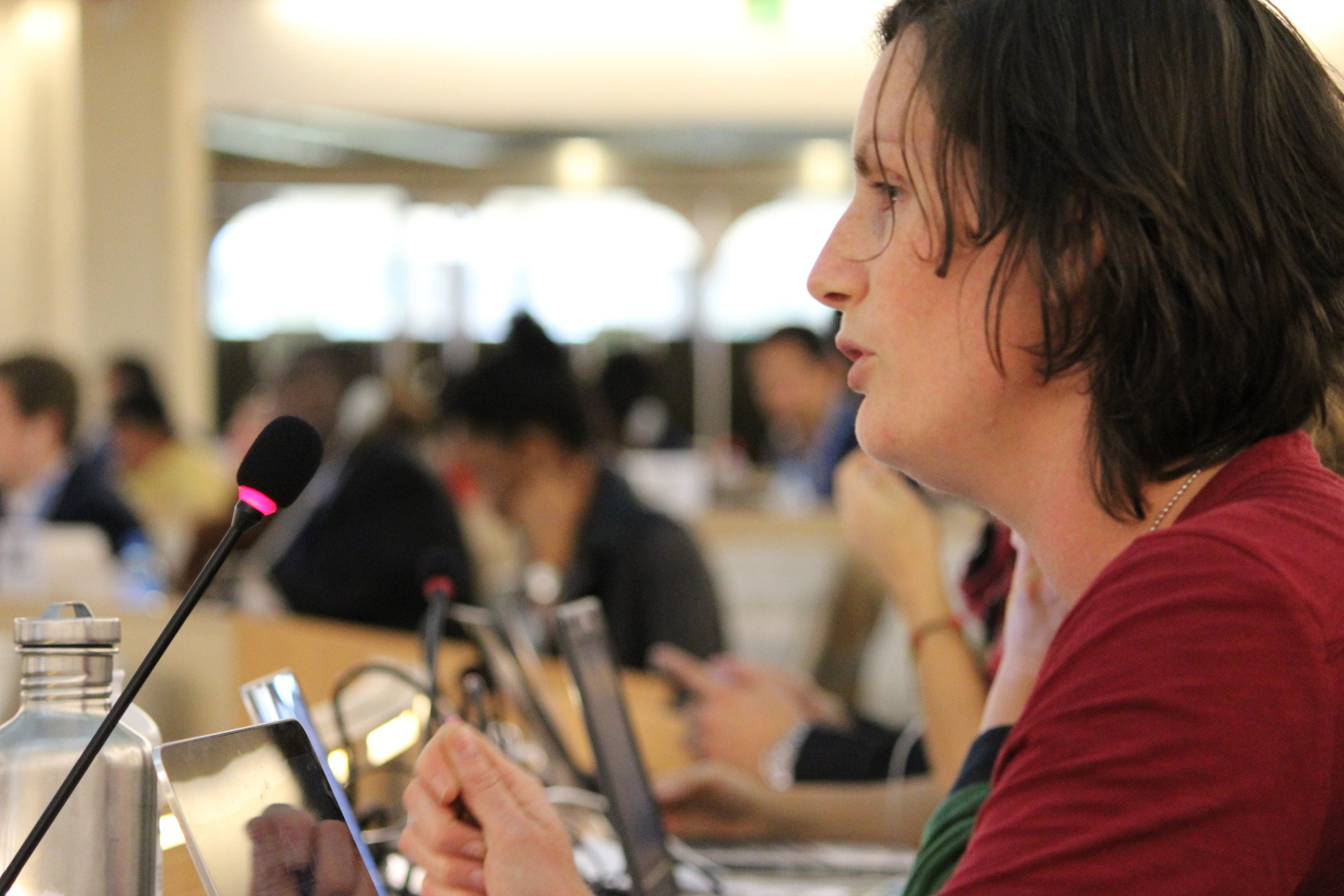Wealthy states in this room must take responsibility: Lynne Davis during Binding Treaty negotiations

Lynne Davis, a small scale farmer from Bristol, UK and a member of ECVC is part of the La Via Campesina delegation in Geneva this week that is joining the Peoples’ Mobilisation during the third UN session on a legally binding treaty for transnational corporations. Here is the full text of the intervention she made from the floor during the negotiations inside the UN
I want to take this opportunity to share some of the struggles of affected people from with Europe.
For example, the struggle of people and farmers in Rosia Montana, Romania. Canadian TNC Gabriel Resources gold mine project plans to destroy both ecology, natural resource and beauty of the area and the land of local farmers. Organised communities of affected people have explored every angle to try to stop this, including applying to have the site listed as a world heritage site. The company responded by suing the government of Romania for 4.4billion euro.
Across Europe foreign direct investment is affecting our access to housing, imposing energy extraction or generation that pollutes our environment and resources.
And Europe prides itself on having the best governance in the world. We have heard, throughout the week, what happen in places in which governments are less accountable to their people?
Surely we can agree that Transnational Corporations have no right to dictate the way we the people live our lives, our access to resources, our access to our lands, our food sovereignty.
And yet as trade liberalisation spreads to every corner of the Earth that is exactly what is happening. A narrow vision of value, yielding false economies of scale, based on infamously flawed assumptions, are given the green light to define exchanges between people. Bit by bit, this is eroding connection and abundance from our lives.
Already we have bundles of human rights, and they are violated every day. The EU and many states here claim that this is because individual states cannot implement these rights. Yet many of the same states have enabled multilateral courts to facilitate TNCs to settle their disputes with the governments of the countries in which they operate. How is it possible that Gabriel Resources can sue the people of Romania and, despite the huge strength they have displayed, the people of Romania end up powerless?
It seems highly convenient that many of the states with strong governance in this room move the blame and responsibility to the smaller states to have better governance. Stop and consider the path that has created this global inequality in the first place.
How unjust to demand this huge economic burden of smaller states to improve their governance, while simultaneously negotiating endless trade agreements with powerful trade blocks and countries . This cannot be left to business to voluntarily implement. This cannot be left to individual states to negotiate in trade agreements, or to enforce domestically.
We need the the wealthy states in this room to take responsibility. We need a multilateral mechanism for accountability. We need a binding treaty on transnational companies and other business interests.
This post is also available in Français.
